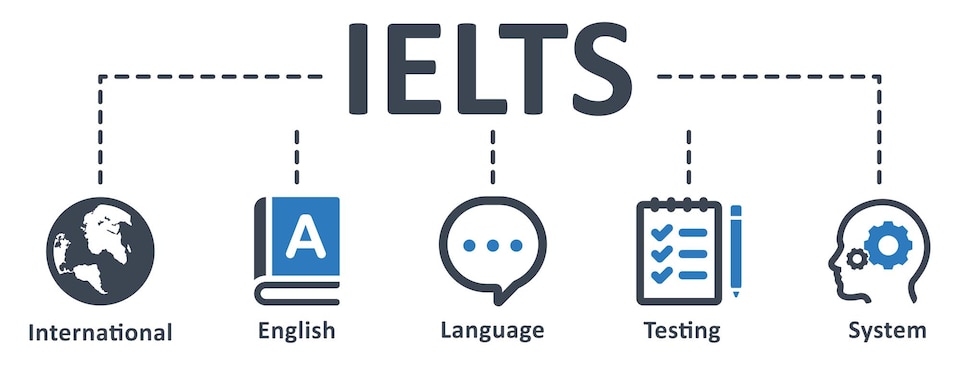01 Jun 2024 | Cultural Adjustments and Tips for International Students Studying in Germany
0
177
Introduction
Studying in Germany is a beautiful chance for international students to acquire an outstanding education and gain insight into the lively culture. The experience of German student life may vary a lot based on your own style and where you are actually coming from. It is kind of difficult to do cultural adjustments in Germany. This guide provides hands-on advice on how you can make a successful story of your time in Germany; the experience will be unforgettable and life-changing.
Understanding German Culture
There are several factors that you will observe when studying in Germany. It is well known that Germans are very precise, punctual and efficient people. Making the transition to these values should mean no lack of success, at least in any academic or social sense.
- Punctuality: Germans are staunch believers in being on time. No one likes being late for class, meetings, or social gatherings. Try to get there slightly in advance.
- Order and Structure: Germany's activity is ordered by principles and regulations that are beyond a reasonable doubt. You spot this right away in public transportation and academic scheduling. The sense of structure is very apparent.
- Direct Communication: Germans have high respect for truthful and open dialogue. Do not be surprised if feedback is given bluntly — this does not happen to insult but in order for it to work so that the message can get across clearly and quickly.
Adjusting to Social Etiquette
Understanding and respecting German social etiquette can go a long way in making a positive impression.
- Greetings: In the case of a general greeting, it is polite to shake the hand and look straight in the eye. It is acceptable if friends embrace each other for a short time or if two persons of the opposite sex kiss on the cheek.
- Personal Space: Germans love personal space. In a typical dating, avoid over close contact because it may be perceived as intruding the privacy of the other person.
- Dining Etiquette: When eating, make sure the palms of your hands are always on the table although do not place the elbows there. The word on the table is usually said before eating and translate to Good Appetite in English.
Join our community for exclusive updates on study abroad.
The German Education System
In my opinion, the worst kind of cultural shock which people can face is the possibility to get what they expect in Germany in the sphere of education and its actual total opposite – students’ independence and free choice of material implying their own further study.
Independent Learning: Pupils learn in a completely different manner, and the teaching process largely depends on autonomous learning.
- Lecture Style: Both are a bit formal, and student participation is not as interactive as in some other countries. However, they do appreciate the people who ask insightful questions.
- Examinations: When it comes to finals, German professors don't play around; they love testing students on everything they have covered in the entire semester. These could be written or oral, so good luck with being prepared for any.
Student-Professor Relationships
In Germany, students have been expected to keep notes for their professors.
- Titles Matter: Refer to your professors as such unless they specify otherwise; always refer to them using their formal titles — Professor or Doctor.
- Office Hours: Go to office hours and meet your professors one-on-one. This is a great chance to get support from academics and clarify answers.
Everyday Life in Germany
Outside the classroom, adjusting to life in Germany involves managing day-to-day activities like finding housing, dealing with finances, and embracing local traditions.
Housing and Accommodation
First and foremost: Accommodation for International Students
- Student Dormitories: If budget is a concern for you and you want to save money, most universities provide affordable dorms.
- Shared Apartments (WG): Renting a room together in a large shared apartment. You can look for available apartments on websites like WG-Gesucht.
Cost of Living in Germany
Managing your finances efficiently is critical to enjoying your time in Germany.
- Living Expenses: On average, students need around €850-€1,000 per month for rent, food, transportation, and leisure.
- Budgeting Tips: Many restaurants and shops offer student discounts. It's also helpful to cook at home and shop at budget supermarkets like Aldi or Lidl.
Health Insurance for Students
Health insurance is mandatory when studying in Germany.
- Public Health Insurance: This is the most common option and covers a wide range of medical services.
- Private Health Insurance: Some international students may opt for private insurance, especially if they come from an EU country with existing coverage.
Question: Are you wondering what happens if you don't have health insurance in Germany? Don't worry! You will need it to enrol in your university.
Banking and Finances
It is necessary to open a bank account; this would allow you to meet your day-to-day expenses.
- Bank Accounts: The majority of students from other countries will open a Girokonto (current account) at any one bank in the town. The government is still heavily reliant on cash, but online banking is increasing.
Also Read: Study Abroad Consultants Online: Your Ultimate Guide
Festivals, Holidays, and Cuisine
Festivals and Traditions
Germany hosts some of the most colourful, entertaining, and unique festivals in Europe, which international students should definitely tick off their bucket list.
- Oktoberfest: Therefore, it is Oktoberfest, the beer fest in Munich; and every student must visit the festival once.
- Christmas Markets: These markets occur in December and are established with foods, crafts, and all sorts of products needed for celebrations.
- Carnival (Karneval/Fasching): See young men and women in brightly coloured costumes parading around or dancing in the streets during Carnival period.
Question: Do you ever think about which carnival Germany has, and this is considered as the largest one in the country? Did you know Oktoberfest pulls millions of the people every year?
German Cuisine
Germany's food culture is hearty and diverse.
- Traditional Dishes: Make sure to try Bratwurst, Schnitzel, and Sauerkraut.
- Dining Out: Eating out can be cheap in student spots, and bakeries are a great choice for a meal on the go.
Language and Communication
Learning German
Although many Germans speak English, knowing the native vocabulary will help you make life smoother.
- Language Courses: Most universities have facilities that help international students learn German.
- Practice Makes Perfect: Practice speaking with locals or joining language exchange programs.
Communication Styles
- Directness: Germans are known for their direct and honest communication, which might seem blunt at first but is intended to be precise.
- Formal vs. Informal: Until invited to use the informal "du," always address people with the formal "Sie."
Earn Rewards by Referring Friends! Join our Refer and Earn program today and unlock exciting benefits. Start referring now!
Overcoming Culture Shock
Moving to a new country can be overwhelming, and culture shock is a natural part of the process.
Initial Adjustment
There are four phases of culture shock:
- Honeymoon Phase: Everything feels new and exciting.
- Frustration Phase: Homesickness and frustration may set in as you encounter cultural differences.
- Adjustment Phase: You slowly get accustomed to the new way of life.
- Acceptance Phase: You feel at home in the new environment.
Seeking Support
Get support if you need help adapting.
- University Support: If you need help to adapt, feel free to ask for help.
- Student Groups: Quite a few universities provide counselling and support services for international students.
Question: Feeling a little lost during your first weeks in Germany? Don't hesitate to reach out to student support services—we are here to help!
Conclusion
Education in Germany is an opportunity to study in a country of remarkable historical legacy and to get the European quality education. Some of the cultural changes can be really off-putting, but embracing the changes will make your stay in Germany a lot more worthwhile. Absorb the differences, accept them and have fun while studying in Germany.For more assistance, please visit our study abroad consultancy and explore our wide range of offerings for students interested in studying in the USA, studying in the UK, studying in Canada, studying in Australia, studying in Ireland, and many other countries.
Frequently Asked Questions
Q1. Do you have to learn German in order to pursue education in Germany?
Ans. Although there is an English course available the knowledge of at least some German language is useful in day-to-day life as well as in acquiring student jobs.
Q2. In what ways and plans does the health insurance for students exist?
Ans. Welfare insurance is popular whereas some people may be able to afford an individual insurance cover.


